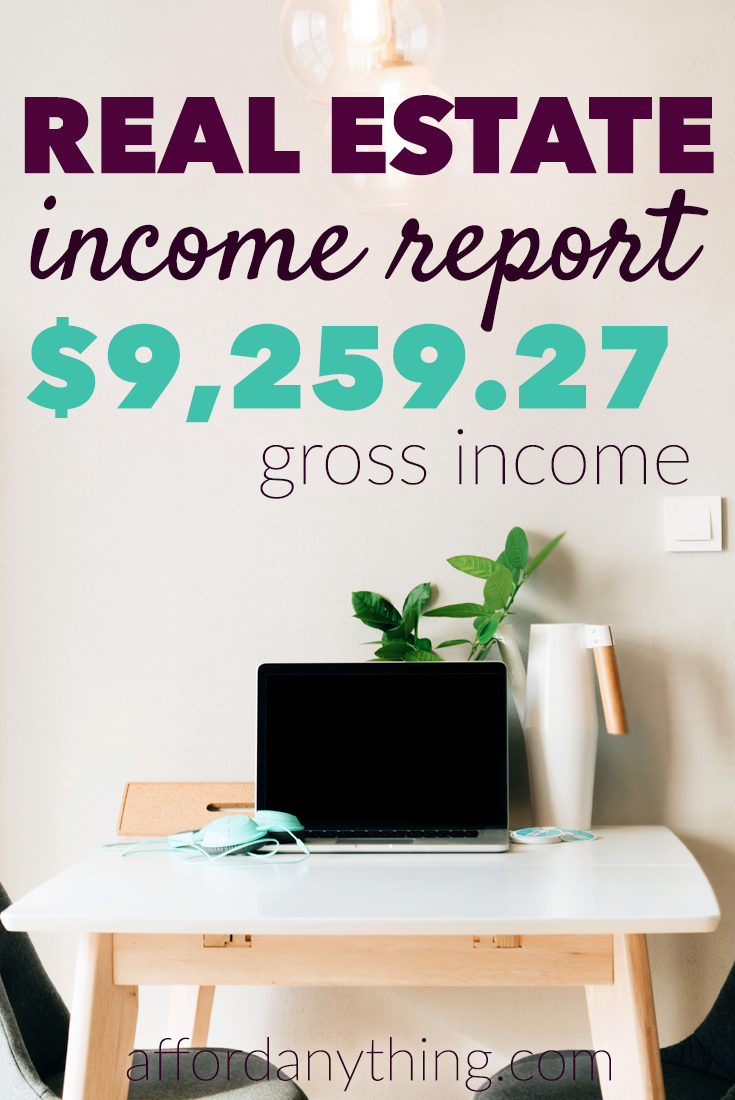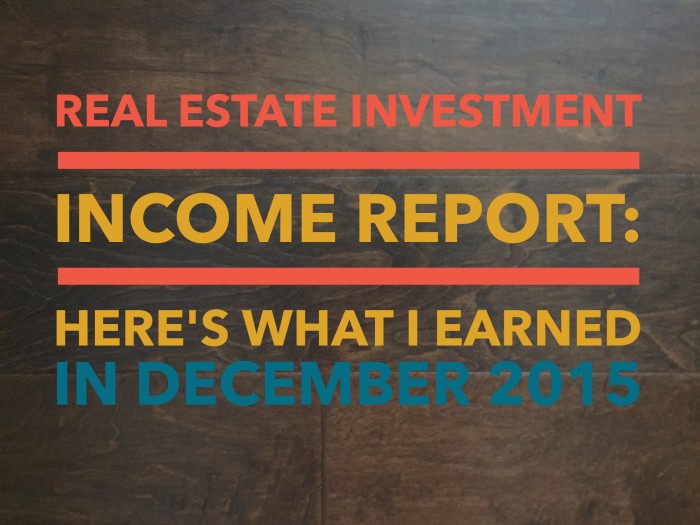
How much income did I earn through real estate investing last month?
And how much time did it take?
I’m back for another round of baring my financial books to the world.
Ready?
If you’re new to this website, here’s a quick synopsis: I own 7 rental units, and I spend a great deal of time teaching people how to develop their own rental property portfolio.
(Actually, I spend my time cracking jokes about Steve Harvey and posting cute cat photos. And once in awhile I throw in something semi-intelligent about real estate, too.)
I hear from many readers who hold the same misconceptions, excuses and limiting beliefs:
- “I don’t want to wake up at 2 a.m. to plunge toilets.”
- “I’m not handy.”
- “I don’t have enough time.”
- “I don’t live near any good deals.”
- “Are you going to eat that?”
Oh wait — I said that last line. 🙂
Anyway –
Rather than trying to explain confounding concepts like “no, I don’t plunge toilets at 2 a.m.,” and “seriously, I don’t do that,” I figured I’d show the complete behind-the-scenes picture.
Here’s exactly:
- What I earned
- What I spent
- What’s leftover
- How much time I spent
Take a look at the numbers and decide for yourself if you’re interested.
A few notes:
- This is a cash flow report, intended to show volatility. Some months I’ll pay for new windows + replace a stove + have a vacancy, and cash flow will be minuscule or negative. Other months I’ll have no expenses other than mortgage payments, and cash flow will be ridiculously high. Keep watching month-after-month to get a sense of the full range.
- I track time by jotting down, to the nearest 10 minutes, the tasks I’ve handled. I’m not going to carry around a stopwatch and be like: “Sent a text message. 42 seconds!” But I will tell you whom I texted, about what, and approximately how long the overall project took. And when in doubt, I round up, assuming that things take more time instead of less.
- I’ve created a Master FAQ page. I turned this FAQ page into a 2,200-word article just by copy/pasting my answers from the comment stream in October and November’s monthly cash flow reports. Whew! I’ll continue adding to this page so that all Q’s and A’s can be collected in a centralized location.
Alright, let’s get down to business!
December Gross Income: $9,259.27
Last month, the rental properties collected a total of $9,259.27.
If I were some spammy real estate guru, this is the point where I’d show you a photo of myself holding an oversized novelty check. Then I’d cut off the conversation here, with no mention of the expenses.
Please don’t listen to anyone who does that.
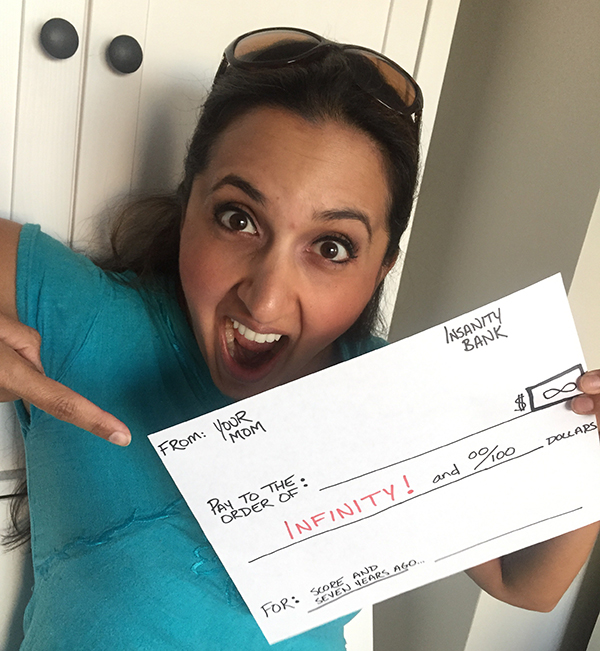
Here’s the breakdown, with commentary:
- Unit 1: $2,750
- Unit 2: $1,490
- Unit 3: $1,295
House #2: $200.50 — See note below.
House #3: $1,273
House #4: $1,500
House #5: $750.75
Ridiculously Tiny Interest From Bank: $0.02
Oh Yeah, One More Thing:
Last month we deposited two small refunds:
- Refund of Stupid Bank Fee: $3.00
- Refund of Excess Insurance Premium: $54.18
Our bookkeeping software classifies refunds as “income,” which is why the screenshot below shows gross income of $9,316.43. Not a big deal, but wanted to mention it for clarity’s sake.
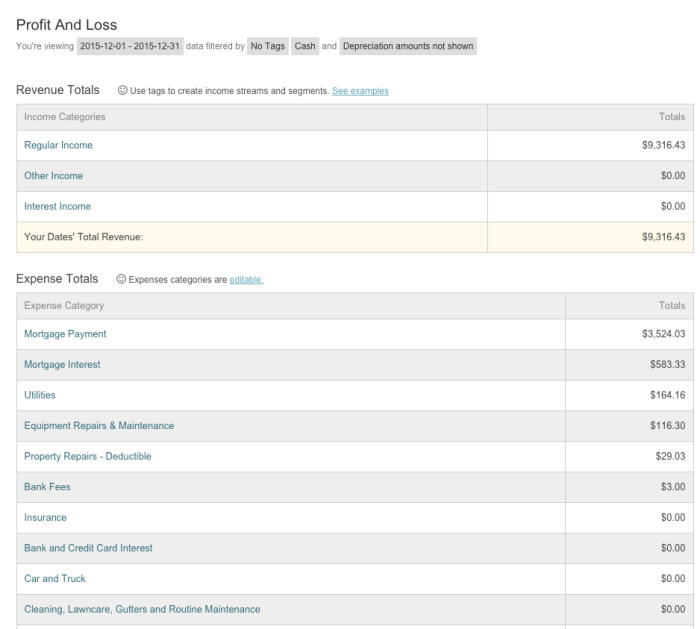
If you’re wondering why House #2 shows a paltry $200 in rental income:
My property manager subtracts the cost of repairs, maintenance, new appliances, etc., plus her management fee, and sends me whatever is leftover.
House #2 needed three windows last month, at a total cost of $650. After subtracting for windows plus her normal management fee, the leftover amount — the “income” — totaled $200.50. Wheee! #DrinksAreOnMe
By the way, this is why I’m styling these reports as actual cash flow.
If I were like, “I brought in $X, and I’m saving $Y for big-ticket repairs,” then later — when I spend $650 on windows — I’d have to re-adjust all the numbers. Otherwise, the windows would be counted twice.
And if I said, “I’m also saving $Z in case of vacancies,” then later — when I have a vacancy — I’d again need to re-adjust the numbers.
And that would turn into a huge spaghetti tangle.
That’s why I’ve chosen to show you cash flow.
Speaking of which —
What OTHER expenses did we incur?
Mortgage: $3,524.03
- This is PITI (principal, interest, taxes and insurance) for several houses.
Mortgage, Part II: $583.33
- This is specifically the payment for House #3. Throughout 2015 we paid this quarterly, but effective January 2016 (and sent/deposited in last month of 2015) we’ve moved to a monthly payment system. I have no idea why my bookkeeping software decided to classify this differently, but here we are.
Utilities: $164.16
- We pay the water/sewer bill for the triplex. The tenants pay for all other utilities (including water/sewer for every single-family home).
Equipment Repairs: $116.30
- This includes $108.22 to buy a timer for a washing machine, plus $8.08 at Home Depot. These are classified as “equipment repairs” since both are related to washing machine repair.
Property Repairs: $29.03
- This is miscellaneous repair-related stuff. (My contractor buys a lot of random crap — a tiny section of PVC pipe; a 10-pack of outlet covers; a bottle of spray foam, a box of screws. That kinda stuff.)
Bank Fees: $3.00
- Grrr. I hate our current business bank. (Hint: Their name begins with a “W” and rhymes with “Smells Bargo.”) They nickel-and-dime me every month. (Well, technically, they $3 me). And every month, I email them and ask them to refund it. And they do. And then we repeat the cycle the following month.
The insane part is that I know there are better business banks — heck, the Afford Anything LLC account is at a different institution — but I haven’t gotten around to switching. I’m too busy watching Downton Abbey reruns. So instead, we continue our monthly fee-then-refund dance. How uncivilized.
Total Expenses (Including Debt Servicing): $4,419.85
Cash in My Pocket: $4,895.58
Total net cash flow came to $4,895.58 after paying all expenses, including the mortgages.

Hooray!
#MaybeDrinksReallyAREonMe
Bear in mind, this is a cash flow report, intended to showcase monthly volatility. That’s a nerdy way of saying “Some months will suck. Others will make you feel like a baller. Join me every month for the full-throttle rollercoaster experience.”
This is a good month: no vacancies, no major renovations, and our mug shots haven’t been featured on the nightly news.
During these good months, stockpile cash so you’ll be prepared for the bad months. It’s not all daisies and kittens.

How Much Time Did This Take? (Spoiler Alert: 5 Hours, 30 Minutes)
How much time did we spend in pursuit of this $4,895?
Here’s exactly what we did:
- 1 hour — Dealing with ongoing squirrel-in-the-attic issue. It never ends! Turns out, it might not be a squirrel at all. It might be a raccoon. Or maybe a rat? This is why I’m not a zoologist. My species identification sucks.
-
1 hour — Coordinating with an appliance repair guy to repair the washing machine in Unit 2.
- 30 minutes –Routine check on triplex during a trip to Atlanta.
- 15 minutes — Routine check on House #3 during a trip to Atlanta.
- 15 minutes — Routine check on House #4 during a trip to Atlanta.
- 15 minutes — Routine check on House #5 during a trip to Atlanta.
- 90 minutes — Total commute time for all these routine annual checks. (Hooray for driving during off-peak hours!)
- 30 minutes — Reading property management reports and looking through the bookkeeping software.
- 10 minutes — Emailing the House #2 property manager.
- 5 minutes — I’m just adding this here, because otherwise it would total “5 hours 25 minutes,” and that’s a goofy amount of time to report.
Total: 5 hours, 30 minutes (including commute time)
I don’t know if you want to count this, but I also spent about 30 minutes shopping for a holiday present for my contractor. He got champagne and dog toys. (Seriously.)
We earned $4,895 with 5 hours, 30 minutes of work (or 6 hours, if you count shopping for booze + puppy treats).
You could describe this as roughly $906 per hour. But that’s silly.
Passive income investments are created to stop trading time for money.
I’m not making $906 as an hourly rate; at this stage in the game, the hourly rate formula flies out the window.
This is what can happen when income derives from capital rather than labor.
A few notes:
- I like to visit the properties 1-2 times per year (eh … once per year) to check for red flags, like missing gutter sections. My philosophy: catch these NOW before they inflict long-term damage. An ounce of prevention is worth a pound of cure.
- Yes, I trust my contractor and (when applicable) my property manager, and I know they’ll inform me about any warning signs. But I’m also a believer in the expression “trust but verify.” Visiting the properties at least once a year is a prudent move.
- OMG, did I just use the adjective “prudent”? A prudent move? Really? I must be the least-exciting-person you’ve ever met. “C’mon kids, let’s be prudent!” Don’t you want to come party with me in Vegas? We’ll be soooo prudent!
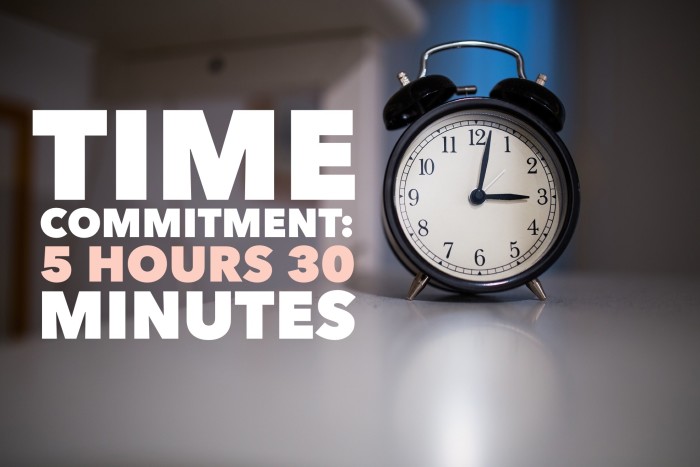
Questions, I Have Questions!
You’re probably wondering:
- How much did you pay for these properties?
- Where are they located?
- Who are you?
- Why do I exist?
- What’s the meaning of life?
- Could you tell me more about taxes?
- What the heck is PITI?
- Do you use property managers?
- How did you misidentify a squirrel vs. rat vs. raccoon?
- What’s the best guacamole recipe?
- Is coffee good for you?
- How about chocolate?
- Red wine?
- Ah, you’re kidding. I thought donuts were a health food? You’re saying they’re not?
- What if they’re rosemary pistachio donuts?
- Ginger donuts?
- Coconut?
Here’s the thing:
Some of you have been reading me for years. You already know the answers to questions like “what did the properties cost?;” you were there (as a reader) when I bought them.
Others just discovered this website last week. All of this is new.
So I’m tasked with the twin goals of (1) answering questions, while (2) not boring my longtime readers.
Solution: The Ultimate FAQ Page. This is a living, dynamic list that’ll keep growing.
The more questions I get, the longer this page will grow, until eventually the Internet runs out of space.
The Search for House #6 Begins … and Ends
I’d like my next property to be in Atlanta, rather than Las Vegas where I live, for one simple reason: I’ve already built a team there. If I need a plumber, electrician or HVAC installer, I know who to call.
I spent a week in Atlanta in December, kicking off the search for House #6. And for the sake of keeping y’all in the loop, I tracked my time with the toggl app.
Here’s what it looks like:
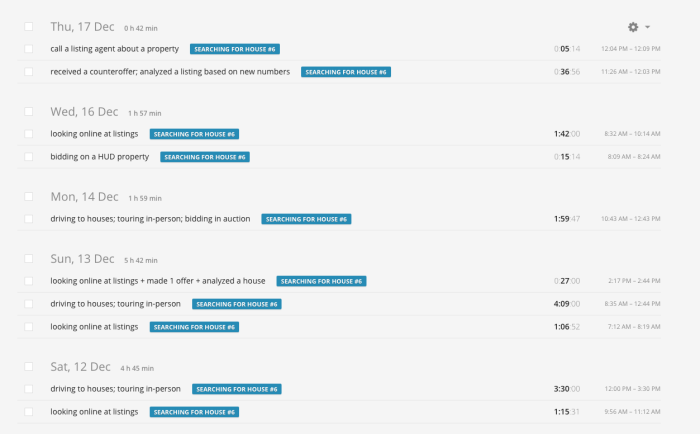
Searching for House #6 consumed:
- 15 hours
And resulted in:
- Zero properties! 🙂
I’ve never tracked my time searching for a property (from start to finish), but I wouldn’t be surprised if I spent 100+ hours for every house that I buy.
“But that’s a lot of work!”
Yeah. You know how I always say that passive income is not free money?
In order to create the incredible benefits that I enjoy today, I front-load the workload. Work hard today; reap rewards for years.
It’s like planting seeds in a garden. Tilling the soil is a pain-in-the-butt, but you get awesome tomatoes all summer long.
Here’s exactly how I search for properties:
First, I narrow my focus.
It’s easier to spot trends and contextualize prices if you specialize in a narrow geographic niche.
I picked a couple of zip codes, using strategic and specific criteria.
For House #6, I looked for the following:
- 3 bedroom / 2 bath single-family residence
- Minimum of 1,200 square feet, with each bedroom larger than 120 square feet (10′ x 12′)
- Ideally a fixer-upper.
- Must be a foreclosure, short sale or estate sale.
“How come you’re not considering multifamily homes?”
Start small. Expand later.
I can’t search for multiple types of properties simultaneously. I focus on ONE type of property.
This is a systematic approach.
“Okay, cool. Any other search criteria?”
These next two points are critical:
- ARV (after-repair value) should be roughly $90,000 to $100,000 ….
- …. but I should buy it for $60,000 to $80,000, including the cost of upfront repairs.
In other words, I want to buy the property for roughly 20 to 30 percent below market value.
“How is that possible?”
Foreclosures, short sales, estate sales, driving for dollars, sending mailings to the owners of vacant houses, foreclosure auctions.
“How … isn’t that overwhelming?”
Only if you’re bouncing from idea to idea. When I search for a property, I methodically work through a zip code, step-by-step.
Overwhelm comes from a lack of planning.
“Any other criteria?”
Yep! I’m looking for an 8 percent Class B cap rate (or a 7 percent Class A cap rate.)
If I invest $70,000 into a house that rents for $900 per month, assuming $400 of monthly operating overhead and 5 percent vacancy, I’d have roughly an 8 cap property. (It’s a 7.8 percent cap rate, which is close enough for my purposes.)
“Tell me about your searching-for-a-property process?”
In a nutshell:
- I study a few specific zip codes, looking for positive signs (new construction, building permits, well-maintained yards) as well as negative signs (boarded-up houses, front yards with lots of clutter). There can be a LOT of variation within a zip code — even on the same street.
- I learn the prices, rents and occupancy rates of targeted areas. Everything fits within an organized, systematic process. This allows me to understand what’s a winner … and what’s a dud.
In December:
- I toured roughly 10 houses.
- I made offers on two houses: one through the HUD Home Store (foreclosures) and one through a foreclosure auction website.
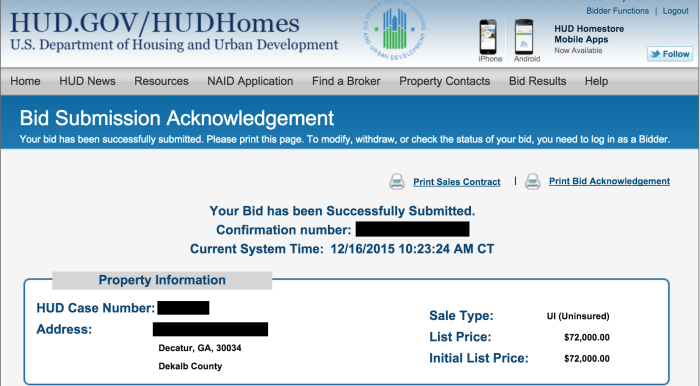
“The who? The what? HUD?”
Yep. If a property purchased with an FHA-insured loan gets foreclosed upon, the federal government (Housing and Urban Development, or HUD) will repay the defaulted loan and then sell the house.
These properties are listed at HUDHomeStore.com and they’re a gold mine for investors — but they’re also competitive. Preference goes to owner-occupants, and HUD will only sell to an investor if they can’t find a qualified primary resident.
There are other risks, as well, which are beyond the scope of this article, but suffice to say that HUD can be a great opportunity if you’re patient and strategic.
I made an offer on a HUD home. They countered with a price I wasn’t willing to pay.
Ultimately I walked away.
“Okay. And … foreclosure auctions?”
Yep, I got into a minor bidding war over a property that I toured.
It came down to myself vs. one other bidder.
I knew how high I was willing to go — and the other bidder was willing to go higher.
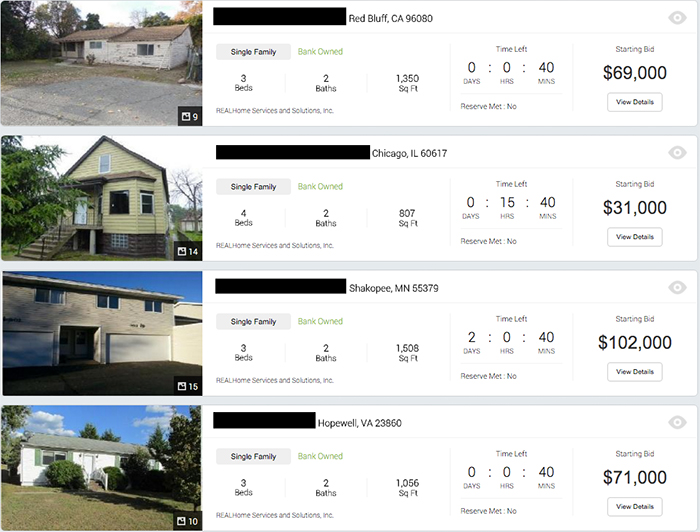
In those situations, it’s tempting to raise your bid. “What’s another $2,000?”
But I held strong.
I ran the analysis. I knew my final price. And I knew when to walk away.
In fact, I physically shut down the laptop and walked away. 🙂
Real Estate Course
That brings us to today.
**UPDATE: It’s now 2020, and Your First Rental Property, our premier real estate investing course, is live! We open for enrollment twice a year. Sign up for the VIP list here for awesome real estate info and course announcements.
Okay, back to 2015 Paula…**
I can describe the deep inner workings of my brain in four points:
- Creating the course
- Creating the course
- Squirrel!
- Creating the course
Here’s a snapshot of my home office:
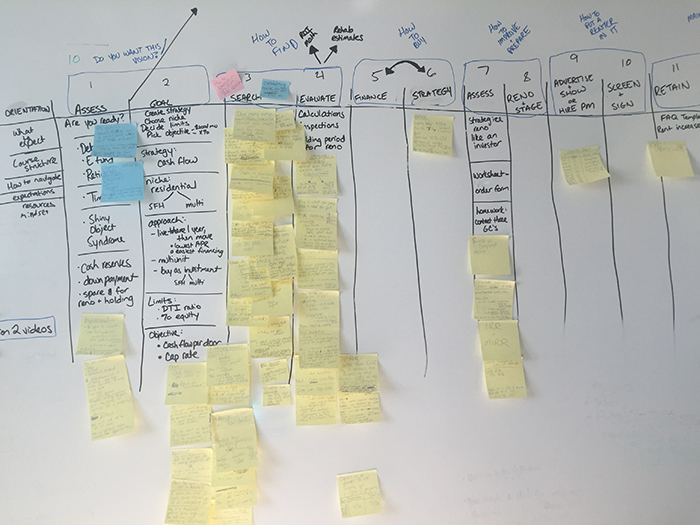
(Apparently I missed the memo that I’m allowed to write directly on the whiteboard.)
Here’s what I realize:
There’s a difference between knowing a skill and knowing how to teach a skill.
I’m deep in the throes of trying to understand the latter.
It’s not enough to just present information. This needs to rise above-and-beyond.
How do I design course material in a way that keeps students engaged? Motivated?
More importantly, how do I design curriculum that results in students taking action? Changing lives?
I can’t just say, “this is how to calculate cap rate.” You can learn that in five seconds of Googling. Heck, you can learn that here, for free.
That’s not enough.
The problem facing most of my readers isn’t a lack of information.
It’s a lack of a system that can convert information into action.
Students can’t graduate from the course as (merely) knowledgeable people. My goal isn’t to help people win Trivial Pursuit: Real Estate Edition. That would be a colossal failure on my part. My goal is to develop students into successful rental property investors.
I want graduates to send me emails saying: “Guess what? I’m bringing in my first $800 per month in net rental property passive income!”
#DrinksAreOnThem !!
So I need to design curriculum that can lead to real, tangible results.
In service of this, I’ve been spending a lot of time learning how people learn. (If you’re interested in this topic, I highly recommend Julie Dirksen’s book Design for How People Learn. Ironically, it’s academic and dry. 🙂 But if you can power through, it’s filled with insights about the way we learn, and how we apply that knowledge to the real world.)
After deep-diving into this field, I’ve figured out that this course needs to be:
- Interactive. It needs quizzes, worksheets, checklists, homework, and group interaction.
- Multi-Sensory. It needs both visual and auditory teaching strategies.
- Accountability-Structured. It needs cohorts of peers who keep each other motivated and accountable. And maybe it should have grades?
In short, this course is occupying every iota of my time, attention and energy.
Here’s how I’m clearing space for this:
- I dropped clients. I used the end of the 2015 calendar year as an ideal time to cut several of my freelance writing and marketing clients. This frees more of my time to focus on the course.
- I raised my team’s hours. Yes, I simultaneously dropped my revenue while increasing my expenses. (You should’ve seen my Dad’s face when I told him!)
- I enlisted a learning consultant. I’m working with a Harvard-trained consultant who specializes in teaching-how-to-teach.
I want this to be effective. And I’m willing to put muscle behind that goal.
I’ve also decided to put the search for House #6 on hold for the moment. Searching for a rental property requires mental space, and I want to devote 110 percent of my mental space to creating the world’s most badass English-language residential rental property investing course.
I don’t know when the course will be ready, because I’m not going to rush it. I’d rather be slow-and-great than fast-and-average.
Sign up here to join the VIP List for special announcements about the course.
